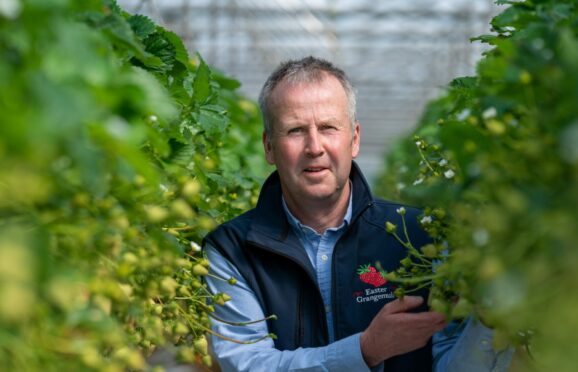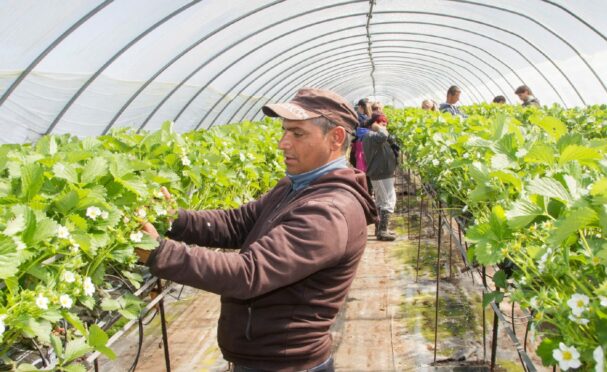The Ukrainian crisis has sent shock waves through Scotland’s soft fruit industry, which relies heavily on Eastern European labour.
Fife grower Iain Brown from Easter Grangemuir said seasonal workers from Ukraine and Russia accounted for 90% of his labour force last year.
“We were relying on our Ukrainian and Russian workers returning this year but clearly that channel is now broken,” he said.
“Labour providers assure us there are alternative sources of labour, but the soft fruit season starts in just three months, so time is against us.
“Without the returnees our productivity will drop. All growers were intending to use a higher proportion of overseas workers this year through the Seasonal Workers Scheme.”
At East Scryne farm in Angus, James Porter said workers from Ukraine, Russia and Belarus made up 50% of his workforce last year, and while agencies were assuring him they had the situation covered, access to experienced returnees was essential.
He added: “If we can’t get returnees it would have a huge impact because without their picking expertise we have to start from scratch training everyone.”
Mr Brown, who chairs NFU Scotland’s horticulture committee, said contractors are working closely with the Home Office to find solutions.
Across the UK, Ukrainians made up two-thirds of the seasonal workforce last year, with a total of 19,920 seasonal worker visas issued to Ukrainian nationals in 2021, according to Home Office immigration figures.
The equivalent number for Russian nationals is 2,278, or 8%.
The Migration Observatory at the University of Oxford said the figures raise “questions about the potential impact of conflict in Ukraine on recruitment to British farms, as the security situation in the nation deteriorates”.
Director Madeleine Sumption said: “For most of the past 15 years, the majority of work migrants coming to the UK were from EU countries. Since the end of EU free movement, the large majority now come from non-EU countries.
“Today’s data show how heavily UK farms have relied on Ukrainian workers in particular, raising the question whether this source of workers will be disrupted by unpredictable events in that region.”


